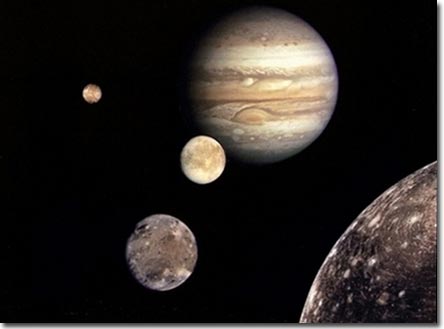2009: International Astronomy Year
International Astronomical Federation (IAU) said the United Nations announced in 2009 the International Astronomical Year to honor Galileo's revolutionary findings about space science 400 years ago.
The idea was proposed by IAU and the United Nations Educational, Scientific and Cultural Organization (UNESCO) based on Italy's aspirations, the home of this great scientist and accepted by the United Nations. There have been 99 countries and 14 organizations registered to participate in the activities of the year. These activities are aimed at promoting public participation in observing the universe, especially young people.
" I think this world is nothing more than suffering without knowledge " - Galileo.
IAU announced ' The 2009 Astronomy Year will focus on international cooperation for peaceful purposes. The process of understanding the origin of the universe and the common heritage of mankind will link the citizens of the whole earth . '
In 1609, Galileo discovered sunspots, craters and peaks on the moon and Jupiter moons with a primitive telescope. His discovery proved the correctness of the Copernican doctrine that planets orbiting the Sun and not the Earth. This made the Roman Church angry for going against the Church's cosmological doctrines. Galileo was convicted by the Inquisition and forced to withdraw his statements or be cremated. Galileo was imprisoned in his home for eight years before he died.
In 1992, after a 13-year investigation, Pope John Paul II declared the church wrong, but also argued that 17th-century scholars were only doing their jobs with the highest knowledge. at the time.

Photo by NASA capturing Jupiter and its four moons in 2003. The United Nations announced in 2009 the International Astronomical Year to honor Galileo's findings about space science 400 years ago.
- Vietnam had the first international gold astronomy Olympic medal
- 2006: International Year of Sea Turtles
- Radio astronomy and giant antennas
- Top 10 best astronomical apps on Android
- Vietnamese woman who won two Nobel Prizes
- The Nobel Prize is not in the Nobel's 'vision'
- The father of modern astronomy
- Astronauts welcome the new year at the international space station
- The uncertain future of the ISS space station when NASA returns to the Moon
- International Robocon prepares to start in Da Nang
- Today 11/10: The world celebrates the International Children's Day
- Milestones of astronomy history
 Van Allen's belt and evidence that the Apollo 11 mission to the Moon was myth
Van Allen's belt and evidence that the Apollo 11 mission to the Moon was myth The levels of civilization in the universe (Kardashev scale)
The levels of civilization in the universe (Kardashev scale) Today Mars, the sun and the Earth are aligned
Today Mars, the sun and the Earth are aligned The Amazon owner announced a secret plan to build a space base for thousands of people
The Amazon owner announced a secret plan to build a space base for thousands of people